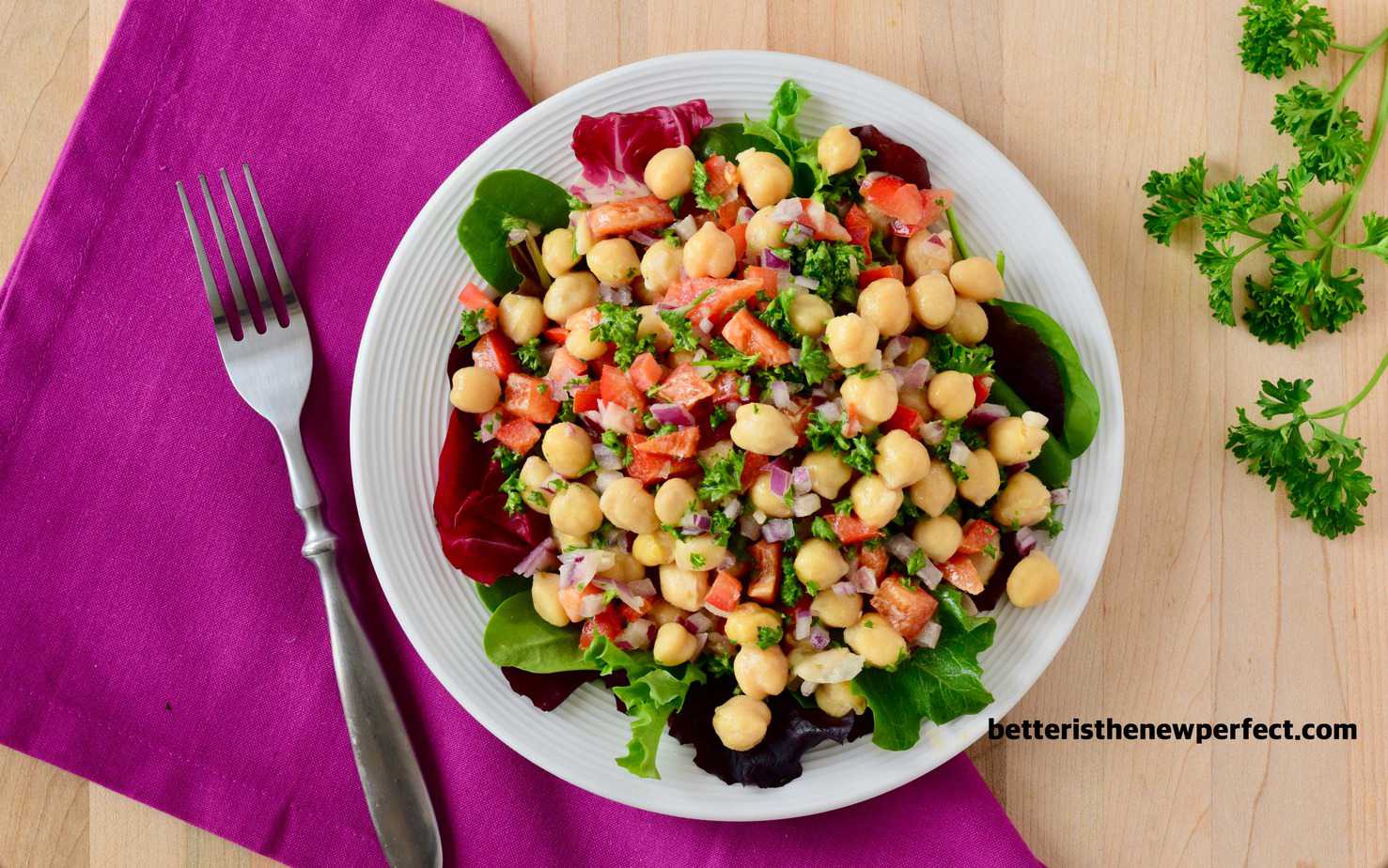Confused about carbs? Before you go cutting them out of your life, read on to find out why carbohydrates are important to your immune system and overall health.
Do carbohydrates cause weight gain?
A 2018 survey found that Americans blame carbohydrates for weight gain, which is probably why low-carb diets are so attractive. Yet, eating a more plant-based diet is linked to better weight control and other health benefits.
What’s more, the Mediterranean diet is considered one of the healthiest ways to eat. It’s rich in vegetables and whole grains, and is anything but low in carbohydrates.
It’s time we stopped loving to hate carbohydrates.
Carbohydrates give you energy
The body prefers carbohydrates as an energy source because they are easily converted to glucose, the fuel that cells use.
Carbohydrates are found in foods such as milk, yogurt, fruit, vegetables, legumes (beans), bread, cereals, pasta, rice, and in cookies, cakes, and other sweets.
With the exception of fiber, carbs provide four calories per gram. Fiber is mostly indigestible, but more on that later.
Carbohydrates are classified as “simple,” and “complex.”
Simple carbohydrates, found in foods including maple syrup, honey, table sugar, and white bread, pasta, and rice, and milk, are digested quickly.
The starch and other complex carbohydrates found in foods such as whole grain bread, vegetables, and legumes (beans), take longer for the body to digest, making for a slower and steadier energy release into the bloodstream.
When levels of glucose dip in the bloodstream, your mental and physical energy drops, too.
Feeling “hangry?” Hanger is a real thing! Read about it here.
What happens when you eat a low-carbohydrate diet
A very low-carbohydrate intake forces the body to use protein and fat for energy, which isn’t ideal. That’s because protein is meant to help build and maintain lean tissue, including muscle, and to make enzymes, hormones, and cells to support life. When protein is used for energy, it cannot do its job to the fullest.
When the body breaks down fat for energy, it produces ketones. Blood levels of ketones remain elevated on a very low-carb diet. Experts aren’t sure about the effects of high ketones on health, but they do know that excessive ketones can be life-threatening in people with diabetes.
Read about why a low-carb diet may shorten your life
Why low-carb diets work for weight loss
You will probably lose weight on a very low-carb eating plan, such as the ketogenic diet.
It’s no mystery why, though. Cutting carbs typically results in consuming fewer calories, which encourages weight loss.
If you don’t want to drastically reduce carbs to shed pounds, take heart. Research shows that reducing fat works just as well for weight loss as lower carb diets.
Carbohydrates are good for your immune system
Fiber, found only in plant foods, including whole grains, vegetables, and legumes, protects against diabetes, heart disease, and colon cancer, and infection. Your gut cannot fully digest fiber, so how is it beneficial to you?
Bacteria in the colon ferment, or feed on, the fiber in food, producing short chain fatty acids (SCFA). SCFA protect the lining of your gut and defend it against colon cancer, help to control blood glucose, reduce inflammation, and strengthen your immune system.
Fiber helps to keep you fuller longer, which is beneficial when trying to control your weight. It also plays a role in lowering blood cholesterol levels and keeping them in a normal range, and preventing constipation.
It’s next to impossible to get the fiber you need on a very low-carbohydrate eating plan. As a result, you will starve the beneficial bacteria in your gut that support your overall health.
Some carbohydrate choices are better than others, but you can still have treats!
How to Eat More Good Carbohydrates
When it comes to choosing carbs, quality counts. It’s a good idea to consider the company that carbohydrates keep rather than taking them off your menu.
Foods rich in added sugars, such as regular soft drinks, granola bars, and candy, typically offer little besides calories. Limit your intake of foods with added sugars, but know that you don’t have to completely avoid them. Find out what your daily added sugar allowance is here.
Read about why it’s OK to eat refined grains
Fruits and vegetables, and plain milk and yogurt, contain naturally-occurring simple sugars. They are not on the list of sweeter foods experts advise us to limit, however.
Foods with naturally-occurring sugar, as well as starchy foods such as whole and enriched grains, potatoes, and rice, are desirable because they supply vitamins, minerals, water, fiber, and phytonutrients, beneficial plant compounds that protect your cells.
Fortified grains supply additional nutrients, such as iron and folic acid, which are often in short supply in women of childbearing age.
Read about the downsides of going gluten-free
How much carbohydrate should you eat?
Suggested daily carbohydrate and fiber intakes are based on calorie requirements.
Experts recommend consuming 45 to 65 percent of your daily calories as carbohydrate. That amounts to:
- 248 to 358 grams on a 2,200-calorie eating plan
- 225 and 325 grams on a 2,000-calorie eating plan
- 202 to 293 grams on an 1,800-calorie eating plan
Of course, you can choose to eat less carbohydrate. Popular low-carb diets suggest far less carbohydrate than nutrition experts. For example, the ketogenic way of eating recommends no more than 50 grams daily, about the amount found in a three-ounce egg bagel.
How much fiber should I eat every day?
• For every 1,000 calories consumed, eat at least 14 grams of fiber from food.
• For example, on a 2,000-calorie eating plan, include a minimum of 28 grams of food fiber daily.
Foods high in fiber to eat every day
It’s easier to include enough fiber and other carbohydrates when you eat at least five servings of fruits and vegetables (which includes beans) and at least three servings a day of whole grains.
Don’t be concerned about eating refined grains. As long as they are fortified, such as bread, cereal, pasta, and rice, they can be part of a balanced diet.
For packaged foods, check the Nutrition Facts panel on food labels for fiber content.
Here are some common fiber sources, with fiber listed in grams:
Navy beans, 1⁄2 cup, cooked: 10
Lentils, 1⁄2 cup, cooked: 8
Black beans, 1⁄2 cup, cooked: 8
Garbanzo beans, 1⁄2 cup, cooked: 8
Whole wheat bread, 2 ounces: 6
White beans, 1⁄2 cup, cooked: 6
Pear, 1 medium: 6
Avocado, 1⁄2 cup: 5
Soybeans, 1⁄2 cup, cooked or roasted: 5
Peas, 1⁄2 cup, cooked: 4
Chia seeds, 1 tablespoon: 4
Apple, medium, with skin: 4
Raspberries, 1⁄2 cup: 4
Potato, medium, with skin, baked: 4
Sweet potato, medium, flesh only, baked: 4
Almonds, 1 ounce: 4
Broccoli, 1⁄2 cup, cooked: 3
Orange, 1 medium: 3
Banana, 1 medium: 3
Quinoa, 1⁄2 cup, cooked: 3
Fiber fights high blood pressure and elevated cholesterol
The Truth about Carbohydrates
Most foods rich in carbohydrate also contain important nutrients that are not found in other foods.
Like any calorie-containing component of food, including protein, fat, and alcohol, too much carbohydrate may end up as stored body fat because of the excess calories it provides.
Eating much less than the recommended amount of carbohydrate is not a good idea, either, because it may have many negative effects on your health.
Including more plant foods and plain dairy products in a balanced eating plan is your best bet for getting enough “good” carbs. Added sugar can also be part of a healthy diet for most people, including those with diabetes. (Check with your dietitian about your daily carbohydrate “budget.”)










